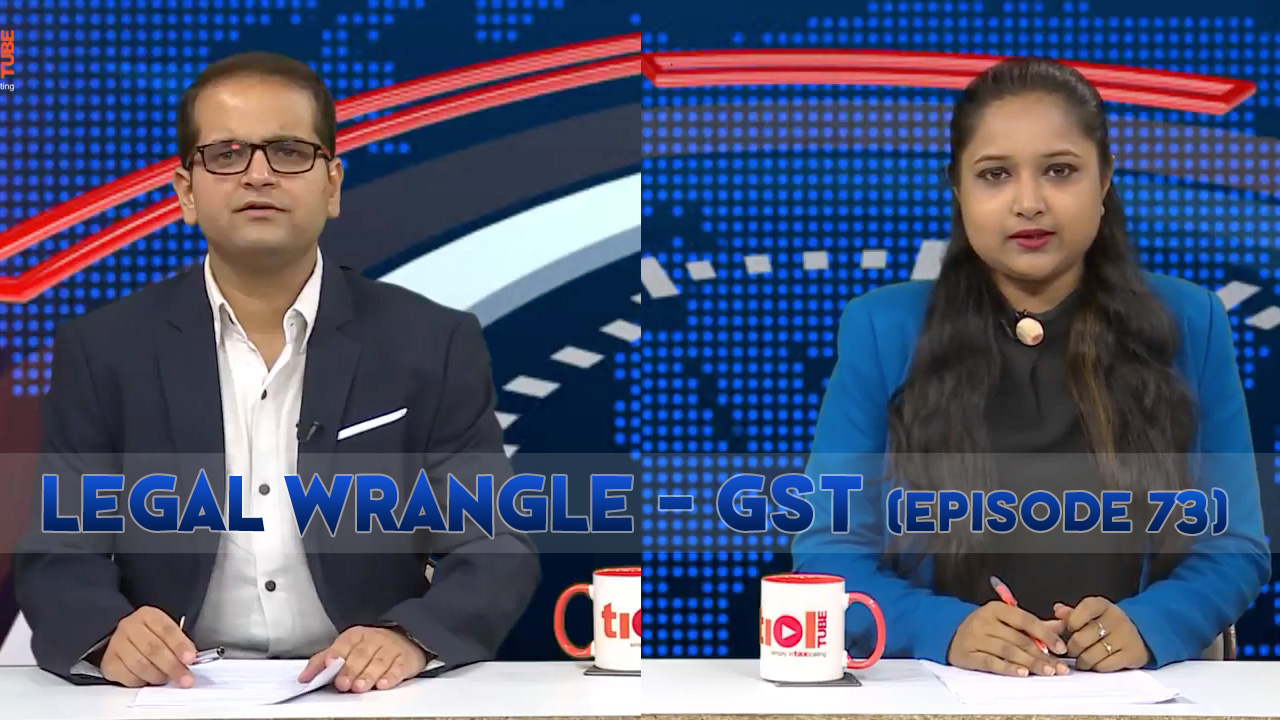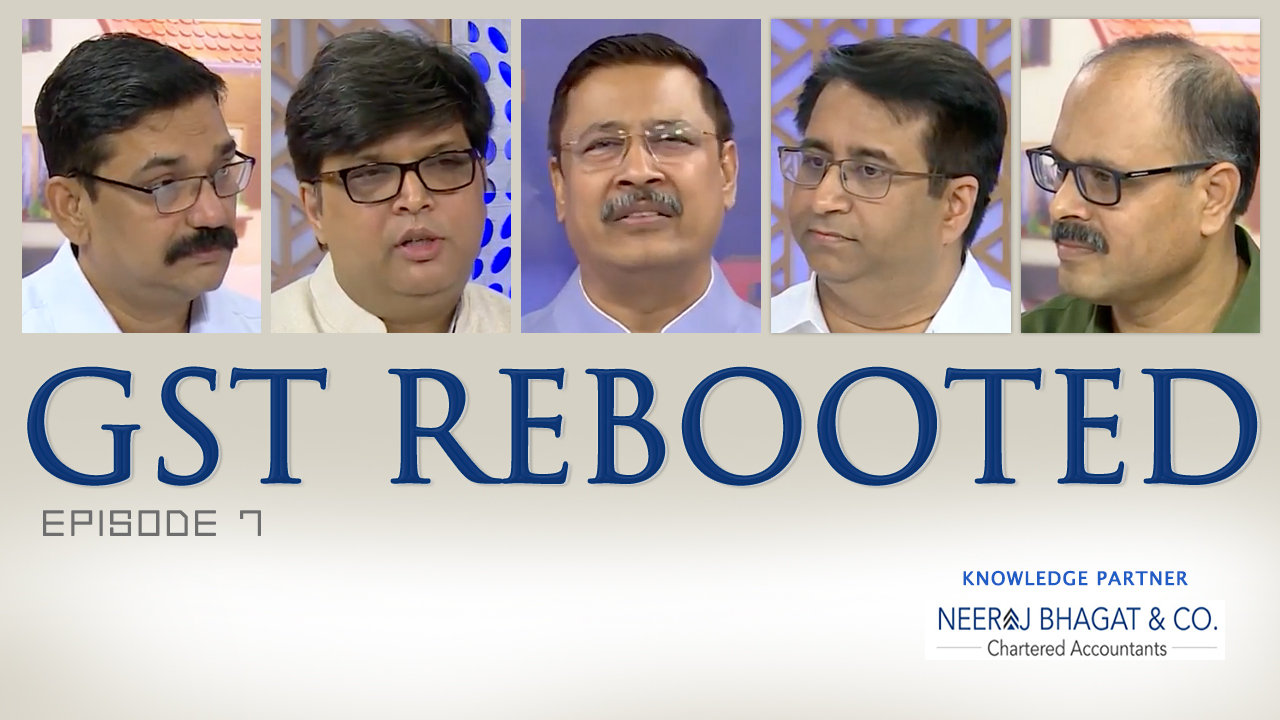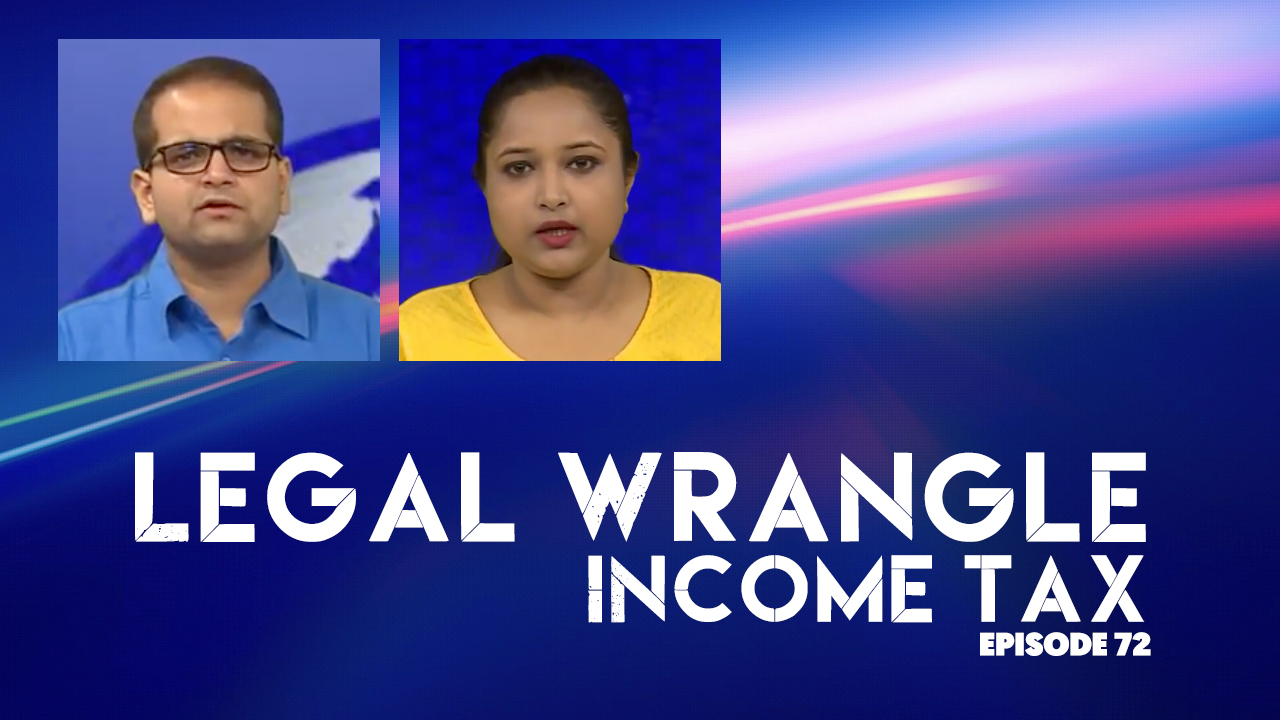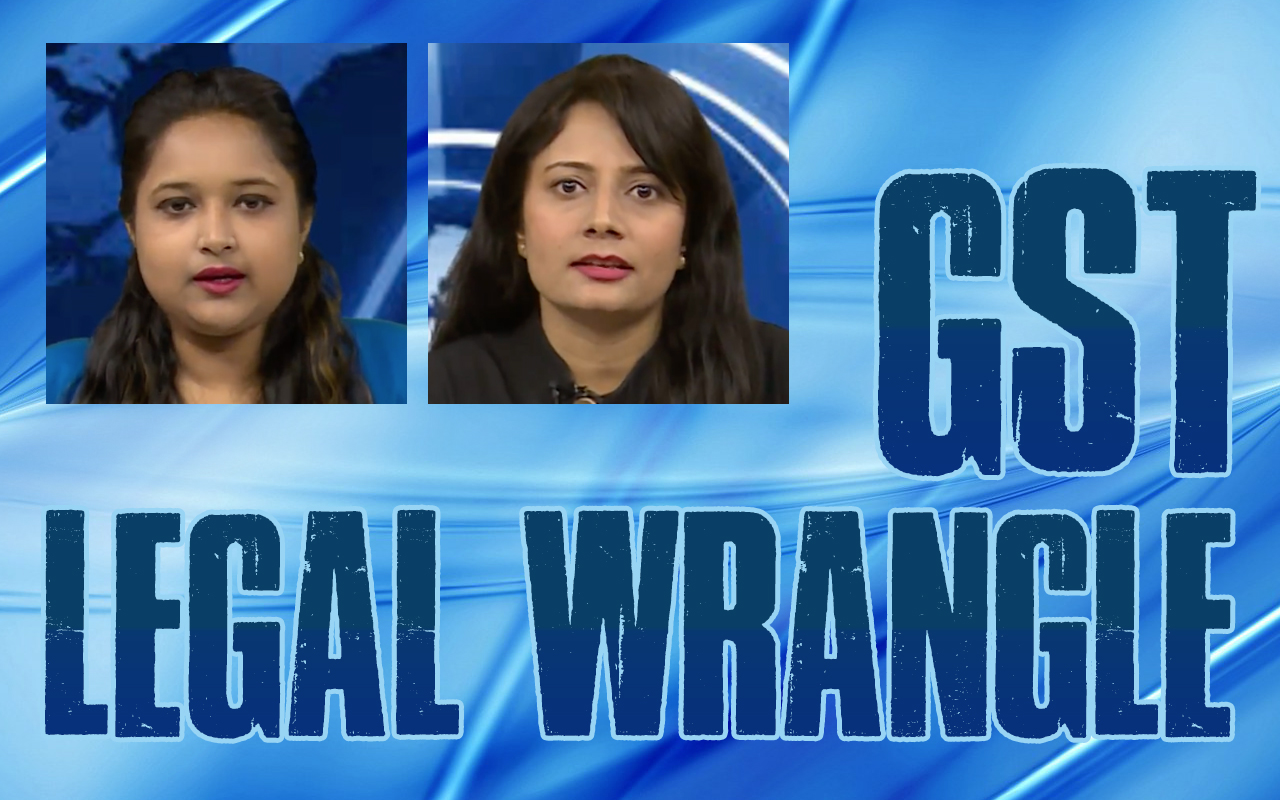SERVICE TAX
2018-TIOL-1532-CESTAT-MAD Bnazrum Agro Export Pvt Ltd Vs CCE & ST
ST - the assessee is manufacturer and exporter of Gherkins - They received services of C & F from an entity in France who were clearing the goods when exported - The assessee paid C & F charges to the foreign service provider - The Department opined that input services were deemed to be rendered in India and the recipient of such services is liable to pay tax under Rule 2(1)(d)(iv) of the Service Tax Rules,1994 r/w Section 66A of Finance Act, 1994 - Duty demands were raised with interest and imposition of penalties u/s 76 & 78 -
Held - Since the services have been wholly performed outside India, they are not taxable under Rule 3(ii) of the Taxation of Services (Provided from Outside India and Received in India) Rules, 2006 - Hence the demands are set aside: CESTAT (Para 1,2) - Appeal Allowed: CHENNAI CESTAT
2018-TIOL-1531-CESTAT-DEL
CDP Real Estate Advisory India Pvt Ltd Vs CCE
ST - Assessee filed the application claiming refund of cenvat credit lying unutilized in its books of accounts on the ground that it has used input services in providing the output service namely, Management or Business Consultant Service (MBCS), which were exported outside the country to its overseas clients - Same was rejected holding that the services provided by assessee are classifiable as "Real Estate Advisory Service" (REAS) instead of MBCS, as claimed by assessee and therefore, benefit under Export of Services Rules, 2005 cannot be granted - The lower appellate authority observed that assessee was in fact, assisting its foreign client for making investment in Indian real estate companies and therefore, such service is confirming to the definition of "REAS" - Further, it has also been observed that the services were consumed in India and as such, benefit of Export of service should not be available to assessee - After going through agreement, it appears that assessee rendered the services to overseas client as advisor of investment opportunities in Indian company, which is clearly covered within definition of MBCS - By investing in a company in real estate sector, investor does not acquire or purchase the real estate property itself - In this context, Tribunal in case of AMP Capital Advisors India Pvt. Ltd. 2015-TIOL-1001-CESTAT-MUM observed that assessee providing advisory services to AMP capital, Australia and the service recipient using said advice received for further advising for their customers in India, would qualify for export of service - Thus, activities rendered by assessee would come within the purview of "MBCS" and he is entitled for refund benefit: CESTAT - Appeals allowed: DELHI CESTAT
CENTRAL EXCISE
2018-TIOL-1530-CESTAT-DEL Unique Structures and Towers Ltd Vs CCE & ST
CX - Assessee engaged in manufacture of galvanized tower parts - They were availing credit on input services in terms of CCR, 2004 - Upon auditing the accounts maintained by assessee, Revenue proceeded against them to disallow Cenvat credit as irregularly availed credits - The two main reasons mentioned in proceedings are that credits have been availed on bills/invoices which were in the name of head office of assessee and assessee did not have registration as ISD - The second issue is with reference to bills/invoices not having the registration number for service tax of service providers - Lower authorities did not give a finding on submissions made by assessee with reference to correctness of documents based on which credits were availed - At least in respect of two service providers, assessee pleads that the bills were complete in all aspects - In respect of other three service providers also, it is submitted that they have all supporting evidence to satisfy the provisions of Rule 9, before the jurisdictional authorities - That being the case, matter requires fresh adjudication based on submissions and documents already made by assessee along with further evidences/documents that can still be filed by assessee - As stated by assessee, bills were having details of registered office and services were availed in manufacturing facility of assessee - This also can be established to supporting evidence - In such situation, denial of credit on this ground alone is not sustainable - Matter remanded to original authority for a decision afresh after providing adequate opportunity to assessee to submit their side of case along with supporting evidence: CESTAT - Matter remanded: DELHI CESTAT
2018-TIOL-1528-CESTAT-MUM
Milton Plastics Ltd Vs CCE
CX - Valuation - Section 4 of CEA, 1944 - Appellant had filed declarations in Annexure-II with the department claiming deductions @14% on account of discount from depot sale price - SCN issued alleging that scrutiny of depot invoices revealed that they had not passed on the said discount of 14% to all the distributors and what was passed varied from 0% to 22% arbitrarily - in denovo adjudication, demand confirmed of Rs.35,42,413/- with equivalent penalty - appeal to CESTAT.
Held: There is no dispute that the goods were cleared under Provisional assessment procedure under rule 9B of CER, 1944 and the appellants had also followed the procedure by executing bond along with bank guarantee and even the assessment was later finalized on 21.04.1996 and the differential duty was paid by appellant, therefore, SCN dated 17.01.1996 demanding duty during the existence of provisional assessment was bad in law as held by the apex court in the cases of ITC Ltd . - 2006-TIOL-141-SC-CX and Seraikella Glass Works - 2002-TIOL-321-SC-CX - demand is unsustainable - impugned order set aside and appeal allowed with consequential relief: CESTAT [para 4] - Appeal allowed: MUMBAI CESTAT
CUSTOMS
2018-TIOL-199-SC-NDPS + Case Story
UoI Vs Jarooparam
NDPS - Omission on the part of the prosecution to produce the bulk quantity of seized opium would create a doubt in the mind of Court on the genuineness of the samples drawn from the allegedly seized contraband - Bulk quantity of the seized case property (opium) was destroyed without obtaining any order from the competent Court of Magistrate as envisaged under Section 52A of the Act - It is apparent that at no point of time any prayer had been made by the prosecution for destruction of the said opium or disposal thereof otherwise - At the trial, the bulk quantities of contraband were not exhibited to the witnesses at the time of adducing evidence - absence of proper explanation from the prosecution significantly undermines its case and reduces the evidentiary value of the statements made by the witnesses - Version of prosecution that the respondent voluntarily made the confessional statement cannot be believed in the light of admission by Narcotics Officer, a key prosecution witness, that the statement of accused-respondent under Section 67 of the Act was recorded while he was in his custody and the time was not mentioned on the statements and thus, it cannot be said that the statement of the accused confessing the crime was of voluntarily made under the provisions of the Act - Order of High Court allowing the appeal of the accused and acquitting him of the charges is a well-reasoned judgment and needs no interference - Appeal by State dismissed: Supreme Court [para] - Appeal dismissed :
SUPREME COURT OF INDIA 2018-TIOL-1536-CESTAT-DEL + Case Story
Qingdao Doublestar Tire Industrial and Company Ltd Vs UoI
Cus - ADD on new/unused pneumatic radial tyres - Notification No. 45/2017-CUS(ADD) dated 18/09/2017 - Categorical conclusion that dumped imports had caused material injury to the Domestic Industry cannot be contested either in law or on fact – Appeal of producer and exporter of subject goods in China dismissed: CESTAT [para 8, 10, 12]
Cus - ADD - Grievance of Domestic Industry that threat of injury has not been examined by the DA had no force – Appeal of Automotive Tyre Manufacturers Association [ATMA] dismissed: CESTAT [para 13] - Appeals dismissed
: DELHI CESTAT
2018-TIOL-1527-CESTAT-DEL
Suncity Sheets Pvt Ltd Vs UoI
Anti-Dumping - the appellant herein challenges the imposition of Countervailing Duty (CVD) imposed by the DGAD on certain 'hot rolled and cold rolled stainless steel flat products' imported from China PR - The appellant claimed that both hot-rolled (HR) and cold-rolled (CR) steel products should not have been considered together, since they were distinct & not substitutable without each other - The appellant also claimed that the DA erroneously assumed that the difference between both products is only w.r.t. shape, size, metallurgical composition & rolling condition - The appellant also claimed that the Designated Authority (DA) could not proceed with further investigation for imposition of CVD for subsidy where China PR was treated as non-market economy -
Held - There is no legal requirement of internal homogeneity within the subject goods or for inter-se substitutability of various types of subject goods - The DA examined the production process and concluded that both HR & CR firms could be included for investigation - Besides, the Customs Tariff does not specify both products for classification separately - Expenses incurred in rolling stage, regardless of HC or CR, are insignificant - Also, the DA relied on the scope of 'lesser principle' in terms of the WTO agreement on subsidies for Countervailing measures - Hence there is no infirmity in considering both HR & CR steel products in the same investigation - Hence there is no infirmity in the findings of the DA: CESTAT (Para 2,9,10) - Appeal Dismissed: DELHI CESTAT
|









